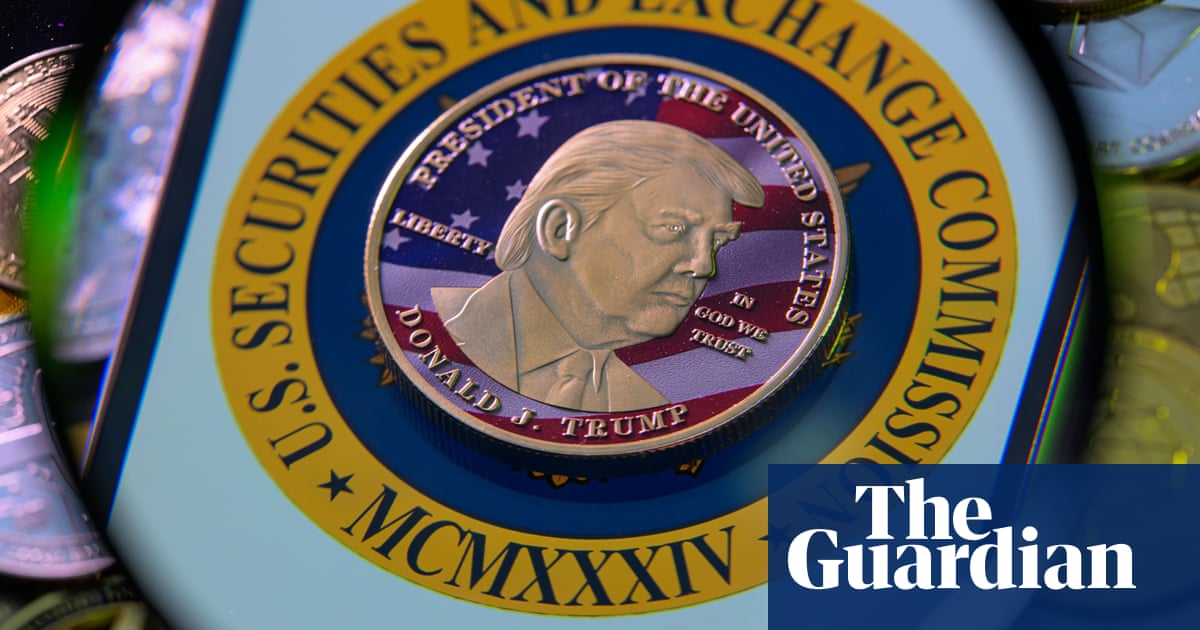Trump’s Crypto Ventures: A Controversial Intersection of Policy and Profit
Donald Trump’s administration is venturing into uncharted waters with a compelling push to ease regulatory oversight of the cryptocurrency industry. This comes at a time when Trump and his sons have rapidly expanded their crypto-related businesses, reportedly reaping billions from investors, including foreign entities. This unique intersection of political influence and financial aspiration is raising significant alarms regarding ethical and legal issues.
The $Trump Meme Coin
One of the most scrutinized endeavors is the promotion of Trump’s meme coin, dubbed $Trump. This novelty cryptocurrency, which holds no inherent value, has attracted considerable attention after Trump hosted an exclusive dinner on May 22 at his Virginia golf club. The invite-only dinner was attended by 220 of the largest buyers of $Trump, who collectively shelled out an astounding $148 million to secure their spots. Critics argue that this blatant commercialization of his brand and online persona raises serious ethical concerns.
The Role of World Liberty Financial
The Trump family’s crypto venture, World Liberty Financial (WLF), further complicates the landscape. Launched last fall, WLF has been aggressively marketed by Trump’s two oldest sons. Recently, it was announced that WLF would play a pivotal role in a $2 billion investment deal orchestrated by an Abu Dhabi financial fund in the crypto exchange Binance. This partnership raises eyebrows, particularly given Binance’s recent admission of guilt regarding money laundering violations in the U.S.
U.S. and Foreign Influences
The timing of WLF’s announcement amid an Abu Dhabi crypto conference, where Eric Trump was in attendance, has heightened suspicions surrounding possible foreign influence in Trump’s business dealings. Critics, including members of Congress, worry that Trump’s focus on crypto ventures could allow foreign interests to unduly influence U.S. policy, presenting unique ethical dilemmas.
Congressional Pushback
In response to growing concerns over potential conflicts of interest, Senate Democrats led by Jeff Merkley and Chuck Schumer have introduced legislation aiming to curb Trump’s ability to leverage his public office for personal gain. This proposed ‘End Crypto Corruption Act’ has garnered significant Democratic backing, marking a clear political stance against what many see as an unprecedented exploitation of political influence for fiscal benefit.
The Appearance of Corruption
Experts have expressed alarm over Trump’s marketing strategies, likening them to selling access to himself as a means to profit from $Trump. Richard Briffault, a Columbia Law professor, underscored how dangerous this arrangement is, noting that people are essentially paying to gain access to Trump, who holds a regulatory position over the very industry they are investing in. This intertwining of personal gain and regulatory power feels alarmingly unprecedented in American history.
The Entity Behind the Investment
Justin Sun, a key figure in Trump’s crypto ventures, has emerged as a major investor, having purchased approximately $20 million in $Trump. His connections to multiple cryptocurrencies and previous legal scrutiny by the SEC raise more serious concerns about the motivations behind these business practices and the level of oversight—or lack thereof—applied to Trump’s dealings.
Regulatory Easing and Implications
Critics have pointed to a pattern in which the Securities and Exchange Commission (SEC) has favored the cryptocurrency industry under Trump’s influence, halting numerous investigations into crypto firms. This has led to fears that the administration is crafting a regulatory environment that allows for more leeway in potentially corrupt undertakings, further jeopardizing market integrity.
Domestic and International Consequences
The implications of Trump’s crypto empire extend beyond immediate financial gain. Watchdog groups have voiced anxiety over the national security risks posed by foreign buyers of $Trump, who may possess motives for funneling large amounts of capital into Trump’s enterprises for favorable policy outcomes. This poses risks not just to economic stability but to the country’s geopolitical posture as well.
Political Repercussions and Reactions
While mainstream Republicans have largely remained silent, some ex-Republicans have expressed outrage over Trump’s rapidly growing venture into cryptocurrencies. Former congressman Dave Trott has labeled Trump’s activities as “corruption and self-dealing,” suggesting an alarming disconnect within the Republican Party regarding ethical standards.
The Broader Picture of Trump’s Monetization Efforts
Trump’s foray into crypto dovetails with his broader political branding strategy. In recent years, he has positioned himself as an advocate for making the U.S. the “crypto capital of the world,” a sharp pivot from previously dismissing Bitcoin as a scam. This shift in stance has allowed Trump to cultivate significant backing from the cryptocurrency community, creating a complex web of financial and political affiliations.
The Future of Trump’s Crypto Ventures
As Trump and his family’s endeavors in the cryptocurrency sector gain momentum, the need for clear regulatory frameworks becomes increasingly apparent. The intertwining of public office, personal profit, and foreign investment raises substantial ethical questions about American governance, leaving many to wonder: where is the line between personal ambition and public duty?


